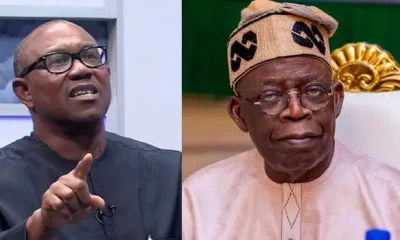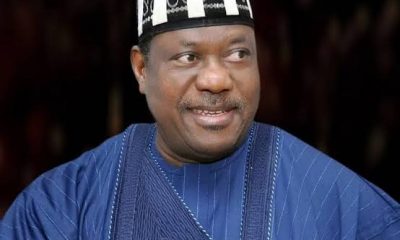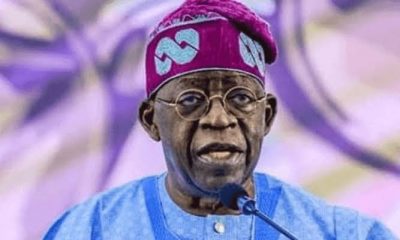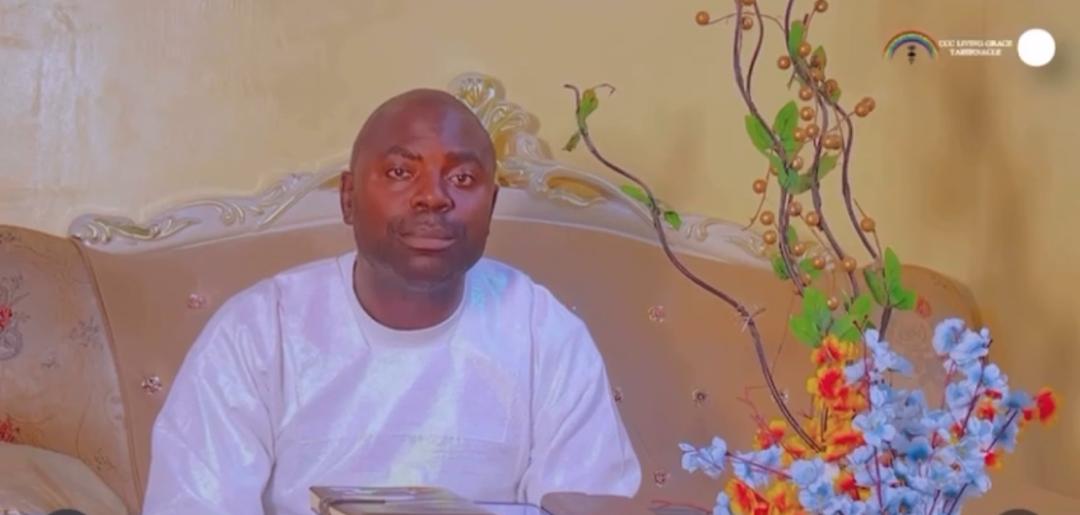news
Subsidy removal: Beyond Tinubu, Kyari’s personal interests
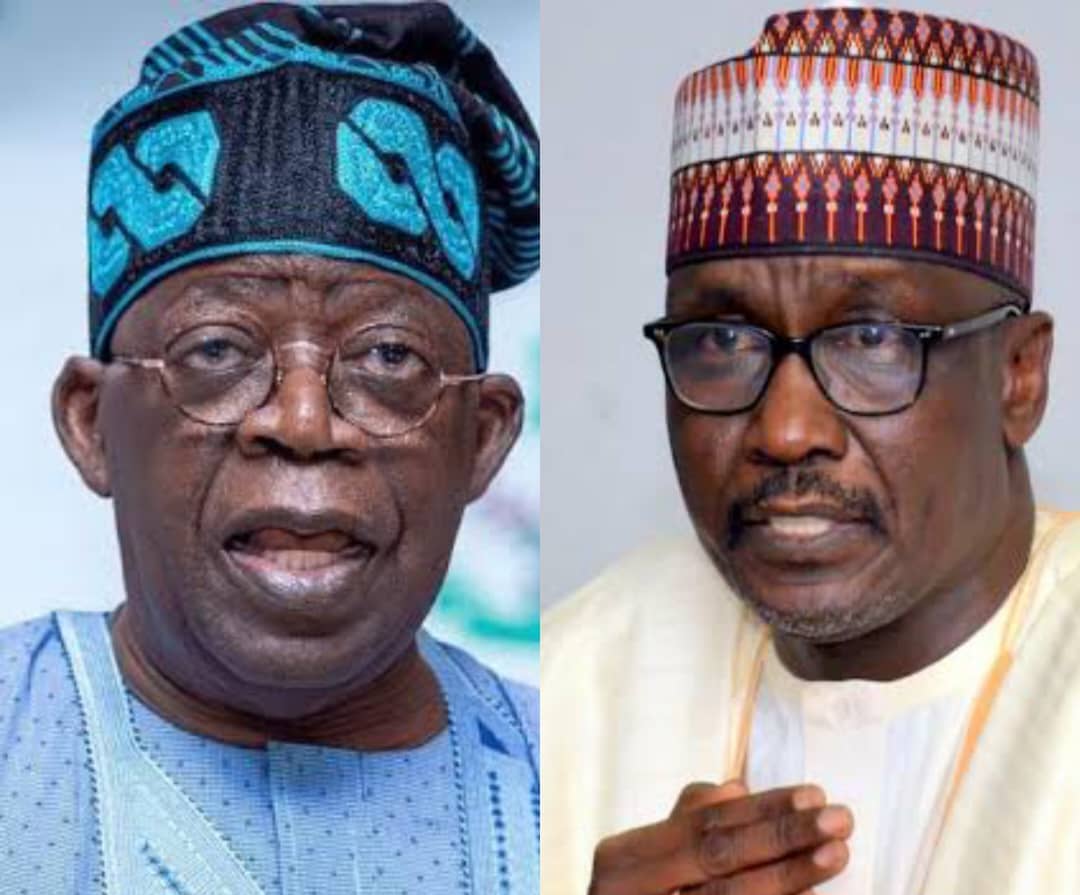
Subsidy removal: Beyond Tinubu, Kyari’s personal interests
By Mohammed Usman
Sahara Weekly Reports That One of the major highlights of the new administration of President Bola Ahmed Tinubu has been the suspension of the payment of subsidy for premium motor spirit, PMS, commonly called petrol.
Though there have been so many reforms introduced into the system since inauguration on May 29, 2023, the removal of fuel subsidies seemed to have been the most daring move ever made by any administration.
Come to think of it, as critical as fuel subsidy removal is to the turnaround of the economy, successive governments have made brick walls in their attempts to end the subsidy regime.
And, ever since that May 29th, 2023 pronouncement, a lot of dusts has been raised from different quarters, either from uninformed, or from the camp of those who benefited, albeit criminally or otherwise, while the subsidy regime held sway. And a lot of water has passed under the bridge too, including threats of strike.
However, it is pertinent to dig deep into this matter. Was removing the oil subsidy the right step in the right direction, or was it another government’s way to punish the masses?
Some say it is a wicked act by the president, Bola Ahmed Tinubu, aimed at impoverishing the masses further. Others say it is the handiwork of the group chief executive officer, GCEO, of the Nigerian National Petroleum Corporation, Mallam Mele Kolo Kyari. In this regard, the two top government functionaries have been the objects of attacks and accusations both in beer parlour discussions and in the press.
However, to the informed, this remains the most courageous move to place the country of the strongest path to its economic recovery.
The concept of fuel subsidy is not new to our national discourse. In fact, subsidy has been in place in Nigeria since the promulgation of the Price Control Act in 1977. It was put in place to cushion the effects of the global inflation of the 1970s.
In recent years, rather than being a blessing, subsidy payments have placed a huge economic burden on the government. The sectors that were affected negatively were the educational and health and housing sectors.
In justifying the subsidy removal, the government said subsidy removal would free up public funds for more meaningful infrastructure and developmental programs that stimulate industrialization, create jobs, economic growth and social prosperity.
For example: Almost N12 trillion spent on subsidy in the last four years is more than sufficient to develop any of the following projects: 2,400, hospitals of 1000 bed capacity across 774 local government areas; or 500,000 new houses to provide shelter to over 3.5 million Nigerians; or 27GW of electricity generation; or skill up and provide education up to tertiary levels for over 2 million Nigerians.
It also said it would create a market reflective downstream, which invariably stimulates more downstream investments, especially in the domestic refining space, thereby creating more jobs, prosperity, and growth.
The removal, according to the government would eliminate the unhealthy price arbitrage with neighboring countries thereby preventing the diversion and smuggling of gasoline outside the nation’s borders which bleeds our economy as well as reduce corruption surrounding internal product diversion as many marketers procure gasoline at subsidized regulated wholesale prices but still sell at deregulated retail prices.
It stated that the rich benefit more from the subsidy than the poor as they have higher number and capacity of vehicles to buy more gasoline; removal of the subsidy creates an opportunity to redistribute this benefit directly to those who need it more.
Subsidy removal also enables responsible gasoline consumption, which reduces waste as the prices are more market reflective, and the demand for the product will rebalance itself with the new price realities.
It equally allows the full recovery of upstream revenues, which enables reinvestment required to grow our national petroleum production and reserves and overall forex earnings.
The removal also would strengthen the naira as the growth of our foreign exchange earnings combined with reduction in product consumption reduces pressure on forex, thereby strengthening the naira.
It would also reduce product scarcity, opening market reflective prices to bring in more players, and create a more efficient market, thereby reducing fuel scarcity and its adverse effects on the economy.
The removal is also expected to reduce the growing and unsustainable budget deficit and, consequently, the debt burden, creating a more robust economic and sustainable future.
Successive governments had sunk trillions of naira into the subsidy payments. In 2006, the Obasanjo regime earmarked N1.9 trillion for these payments. Do not forget that at the period under review, naira exchanged at N130 to a dollar, making the amount $14.6 billion. This amount was to spike in 2007 when the same government spent N2.3trn, or $17.96bn, with naira exchanging for N128 to a dollar.
The above amount either tripled or quadrupled under the Yaradua/Jonathan administration as well as the Buhari administration. Now that the dollar is hovering around N800 in the exchange rate, one wonders what would be the fate of the economy in the next six months had the subsidy stayed.
Probably, this would have been the basis of the constant warning from international agencies of the dangers of accommodating this burden called subsidy. Prior to the removal of the subsidy, there were damning reports from the International Monetary Fund, IMF, and the World Bank concerning oil subsidy.
In its report titled, “Macro Poverty Outlook for Nigeria: April 2023” the World Bank said macroeconomic stability had weakened amidst declining oil production, costly fuel subsidies and other factors, further pushing millions of Nigeria into poverty, and that might become worse if the subsidy stayed up to June on 2023.
The report further said: “With Nigeria’s population growth continuing to outpace poverty reduction and persistent high inflation ratio, the number of Nigerians living below the national poverty line will rise by 13 million between 2019 and 2025 in the baseline projection.”
The bottom line is that in the last two decades, the fuel subsidy had cost the nation several trillions of naira. Even if it is narrowed down to between 2005 and now, the government spent approximately N21 trillion on subsidy payments alone.
The last regime of President Muhammadu Buhari, having realized the dangers ahead, stopped making provisions for the payment in June 2023 when his government would have expired. It was, therefore, incumbent on the incoming administration to pick up the gauntlet and do the needful.
From the onset of the existence of the subsidy, a certain set of individuals had smiled to the bank with each payment. It turned out that something that was done to assuage the suffering of the masses became an avenue for people with greedy and unscrupulous oil marketing companies to divert money into their pockets by sheer unconscionable criminality,
Speaking in a nationwide broadcast last Monday, President Tinubu reiterated on the benefit of the subsidy removal to Nigerians. He said in a little over two months, his government had over a trillion naira “that would have been squandered on the unproductive fuel subsidy which only benefitted smugglers and fraudsters That money will now be used more directly and more beneficial for you and your families.
“For several years, I have consistently maintained the position that the fuel subsidy had to go. This once beneficial measure outlived its usefulness.
“The subsidy cost us trillions of Naira yearly. Such a vast sum of money would have been better spent on public transportation, healthcare, schools, housing, and even national security. Instead, it was being funnelled into the deep pockets and lavish bank accounts of a select group of individuals.
“To be blunt, Nigeria could never become the society it was intended to be as long as such small, powerful yet unelected groups hold enormous influence over our political economy and the institutions that govern it.
“The whims of the few should never hold dominant sway over the hopes and aspirations of the many. If we are to be a democracy, the people and not the power of money must be sovereign.”
However, notwithstanding the president’s speech, the organized labour ordered workers to resume strike on Wednesday after talks with the government failed to yield positive results.
This is in spite of palliatives proposed by the federal government to ameliorate the perceived suffering the fuel subsidy removal would throw up.
This raises the question as to what the Nigerian labour is up to. Is labour truly yearning for the progress of Nigeria, or is it being sponsored by enemies of Nigeria?
At this critical period of our nation, we urge Nigerians to come together to support the good vision of the president to make the nation great, because from all indications, both the president Bola Ahmed Tinubu and Mallam Mele Kyari, the NNPC GCEO mean well for Nigeria.
Usman, a public commentator, wrote in from FCT, Abuja.
news
Journalists for Good Governance Shines Searchlight on Local Government Administration

Journalists for Good Governance Shines Searchlight on Local Government Administration
…Calls for Accountability in Nigeria’s Grassroots Governance
LAGOS, Nigeria — A civil society coalition known as Journalists for Good Governance(JGG) has intensified public debate on transparency and accountability within Nigeria’s local government system, urging media professionals, civil society actors, and citizens to hold grassroots leaders accountable.
Speaking an event in Lagos recently, the acting chairman of the society, Comrade Bunmi Obarotimi said that despite reforms such as the Supreme Court’s 2024 ruling granting financial autonomy to all 774 Local Government Areas (LGAs), systemic challenges continues to hinder effective service delivery and responsible stewardship of public funds.
“Local governments are the closest tier of government to the people — yet too often they remain the least transparent. Without civic oversight and vibrant media, promises of autonomy ring hollow.” the acting chairman said.
The Journalist for Good Governance emphasised crucial roles that journalists can play in uncovering discrepancies in council spending, flagging poor service delivery, and educating citizens on their rights. Their call comes amid wider efforts by media and civic organisations to bridge accountability gaps. The civil society initiatives had previously launched monitoring campaigns to track local government expenditures and have been quietly advocating for transparency in how public money is deployed.
The leaders of the Journalists for Good Governance (JGG) highlighted the importance of physical assessment and citizens engagement on projects to boost people’s confidence, urging local councils to adopt open data platforms and proactive information dissemination in compliance with the Freedom of Information Act. Experts say the majority of LGAs currently lack operational websites or digital portals, further limiting public scrutiny.
The Journalists for Good Governance initiative aligns with sustained advocacy by civil society groups and governance experts calling for a collective approach to strengthening democratic accountability, and has decided to engage in critical and holistic assessments of how Local Governments is being run and the impact and quality of projects they embark-on and to address deficits in transparency and public trust.
Meanwhile, some state governments have signalled support for improved community engagement. In Lagos State, authorities reiterated a commitment to enhancing community media platforms as vehicles for civic participation and accountability at the grassroots level.
The renewed spotlight on local government administration has reignited public debate over fiscal responsibility and priorities. Controversies such as the widely criticised Adamawa council chairmen’s wives trip to Istanbul — which drew public outrage for perceived misuse of public funds — underscore why watchdog groups say stronger oversight mechanisms are urgently needed at the grassroots.
Citizens and activists have welcomed the journalists’ initiative, calling for sustained media engagement that goes beyond headlines to influence policy and accountability reform.
The civic rights advocates note that real change will require robust legal frameworks, a free press, and empowered communities equipped to demand transparency at every level of governance.
As Journalists for Good Governance mobilises its members, the coming months are likely to see heightened media attention on grassroots administration — from council budgets and service delivery to the enforcement of public information laws and digital transparency initiatives.
news
ANOTHER PROPHECY FULFILLMENT BY PROPHET KINGSLEY AITAFO OVER THE EXIT OF DR. KENOLY, ANNOUNCING FEBRUARY’S OPEN PROPHETIC REVIVAL

ANOTHER PROPHECY FULFILLMENT BY PROPHET KINGSLEY AITAFO OVER THE EXIT OF DR. KENOLY, ANNOUNCING FEBRUARY’S OPEN PROPHETIC REVIVAL
– Another Prophecy Fulfillment by Prophet Kingsley Aitafo Following the Passing of Ron Kenoly Ahead of February Open Prophetic Revival
– Prophet Kingsley Aitafo Records Another Prophecy Fulfillment as February Open Prophetic Revival Is Announced
In the released prophecies for 2026, renowned Nigerian cleric, Prophet Kingsley Aitafo, shared a series of revelations touching on Nigeria’s economy, global events, political transitions, natural disasters, religious transformations, and the future of world leaders.
During a special prophetic session, the prophet stated that he foresaw the departure of two world-renowned musicians in 2026 and urged the Nigerian people and the global community to pray for them.
He urged Nigerians and everyone around the globe to pray for the musicians, among other prophecies, and already gave insight concerning them.
On February 3, 2026, American gospel singer, songwriter, and worship leader Ron Kenoly passed away at the age of 81. Widely known as the “Professor of Praise,” Kenoly was celebrated for anthems such as “Majesty” and “Lift Him Up,” which have significantly influenced modern congregational worship around the world.
He was recognized as a pioneer of the contemporary praise and worship movement, leading Scripture-based worship services that became widely adopted in churches across different nations and cultures.
The development has been described by followers of Prophet Kingsley Aitafo as a confirmation of the prophecy earlier declared in the year.
Meanwhile, Prophet Kingsley Aitafo, leader and shepherd in charge of Oneness in Christ, in conjunction with CCC Living Grace Tabernacle, invites everyone to its February Open Revival. It is a prophetic service determined to change lives through miracles, healings, signs, and wonders.
It is not an ordinary service; it is another time for a divine encounter where your faith is strengthened, prayers are answered, and breakthroughs and favour are about to rain. With its theme — Jesus Christ is the same forever — the revival is promised to release the power of Jesus Christ like never before. It is a period of shift and divine encounter.
This revival service is said to hold on the 25th of February, 2026, from 5pm – 8pm at 20, Showole Street, Ewupe, Singer Sango, Ogun State.
It is a season where God is ready to reveal Himself like never before. Members of the public are invited to attend.
news
GEN CHRISTOPHER GWABIN MUSA SUPPORT INITIATIVE COMMENDS STATE-FEDERAL COLLABORATION IN ZAMFARA

GEN CHRISTOPHER GWABIN MUSA SUPPORT INITIATIVE COMMENDS STATE-FEDERAL COLLABORATION IN ZAMFARA
The Gen Christopher Gwabin Musa Support Initiative (GCGMSI) has commended the Zamfara State Government for its decisive contribution to security operations through the donation of newly acquired armoured personnel carriers (APCs), surveillance drones, and other critical operational equipment to troops and security agencies in the state.
This commendation was contained in a statement signed by the Convener of the GCGMSI, Ibrahim Dahiru Danfulani, Sadaukin Garkuwan Keffi/Betara Biu, and made available to the press.
The equipment was formally commissioned on Wednesday, February 18, by the Grand Patron of the GCGMSI and Minister of Defence, General Christopher Gwabin Musa, OFR (rtd.), in a ceremony at the Government House, Gusau. The event was attended by senior military officers, heads of security agencies, and top officials of the Zamfara State Government.
The GCGMSI, in its statement, hailed the donation as a “transformative and timely intervention” that aligns perfectly with its core objective of advocating for and supporting tangible measures that enhance the operational capacity and welfare of Nigeria’s security forces. The Initiative praised Governor Dauda Lawal’s administration for moving beyond rhetoric to actionable, material support, describing the move as a “blueprint for state-level collaboration in national security.”
“The provision of these assets by the Zamfara State Government is a testament to visionary leadership and a profound commitment to the peace and stability of its people,” the GCGMSI statement read. “It represents the exact kind of synergistic partnership between state and federal authorities that the GCGMSI champions. This initiative will significantly close operational gaps, boost the confidence of our gallant troops, and send a strong message to criminal elements.”
Speaking at the commissioning, General Musa emphasized that sustained collaboration is indispensable in confronting the nation’s evolving security challenges. He specifically commended Governor Lawal for his proactive support.
“Governor Dauda Lawal has demonstrated exemplary leadership and an unwavering dedication to the security of Zamfara State,” the Defence Minister stated. “The provision of these armoured vehicles, surveillance drones, and other operational equipment will undoubtedly boost the morale and operational effectiveness of our troops and other security agencies on the ground. This is a commendable effort that should be emulated by others.”
The newly commissioned assets, which include multiple APCs and advanced surveillance drones, are expected to dramatically enhance the mobility, protection, intelligence-gathering, and rapid response capabilities of security forces, particularly in the state’s remote and difficult terrains where anti-banditry operations are ongoing.
In his remarks, Governor Lawal reiterated his administration’s steadfast commitment to being a reliable partner in the security architecture. He urged security agencies to deploy the new resources responsibly and effectively to safeguard lives and property.
The Federal Government, through the Ministry of Defence, reaffirmed its commitment to continuing and deepening such partnerships with state governments across the nation to strengthen coordination and resource allocation in the collective fight against insecurity.
The GCGMSI concluded its statement by urging other state governments to take a cue from Zamfara’s “bold and pragmatic” approach, affirming that such concrete support is vital for achieving lasting peace and security across Nigeria.
-

 celebrity radar - gossips6 months ago
celebrity radar - gossips6 months agoWhy Babangida’s Hilltop Home Became Nigeria’s Political “Mecca”
-

 society5 months ago
society5 months agoReligion: Africa’s Oldest Weapon of Enslavement and the Forgotten Truth
-

 society6 months ago
society6 months agoPower is a Loan, Not a Possession: The Sacred Duty of Planting People
-

 news6 months ago
news6 months agoTHE APPOINTMENT OF WASIU AYINDE BY THE FEDERAL GOVERNMENT AS AN AMBASSADOR SOUNDS EMBARRASSING



